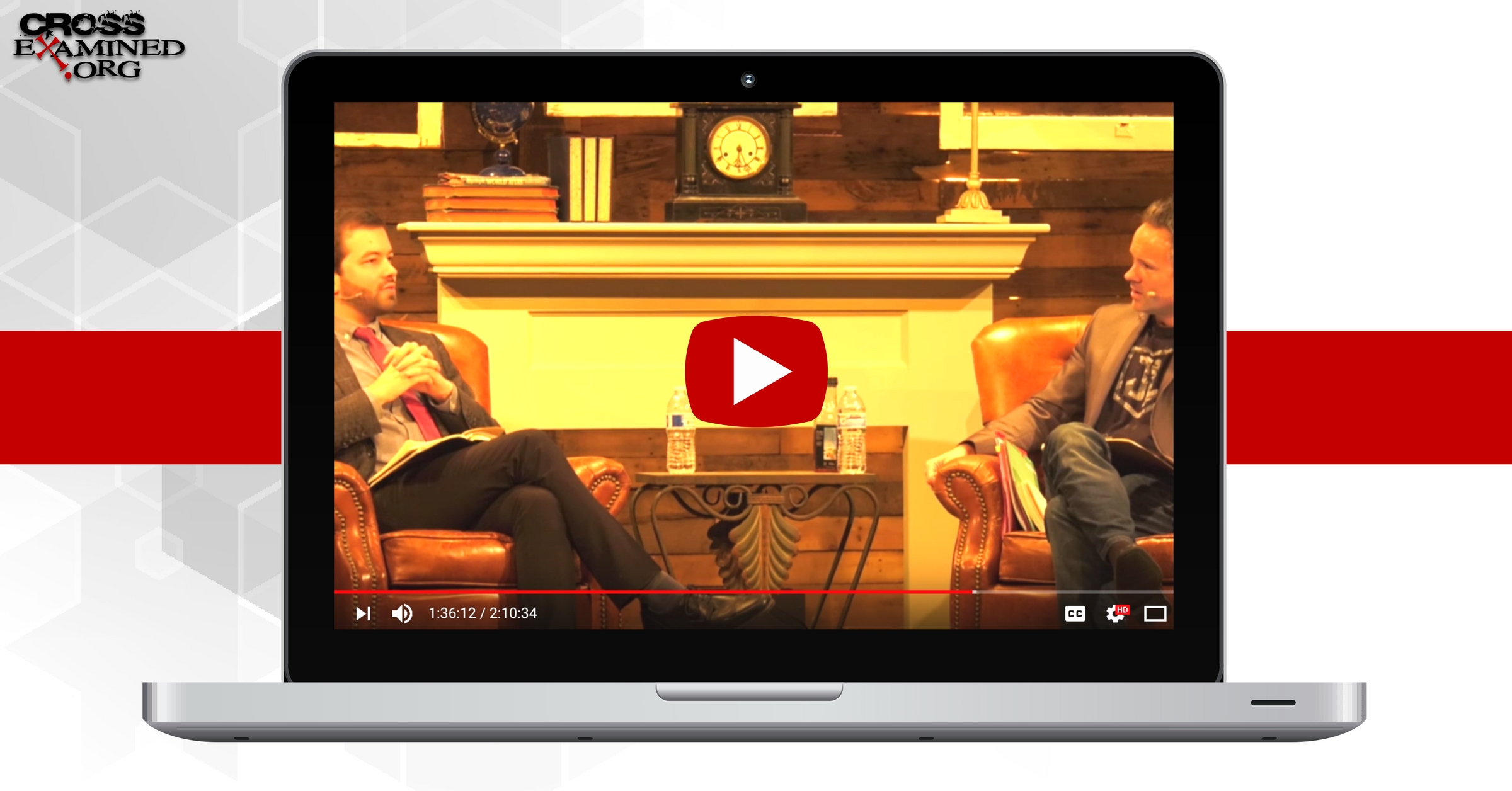By Josh Klein
Previously, we looked at the dichotomy between what it means to declare homosexual activity a sin and how those who believe in Christian orthodoxy deal with it. We addressed the current cultural movement’s roots and introduced the idea of identity into the argument.
It was necessary to do this so that we can have a strong foundation from which to build the following arguments. We must first know why the liberal theologians seek to glorify homosexuality as an identity to understand why the interpretation of scripture has shifted from condemning obvious sinful behavior to condoning that very same behavior.
If you have not read part one you can do so by clicking here.
The goal of the believer should not be to convince the unbeliever of individual sins, such as homosexuality, but to seek to persuade, with the power of the Holy Spirit, that individual that they themselves are a sinner and in need of God’s saving grace.
But once this person becomes a believer, how does the conversation about homosexuality continue? If they are encouraged to keep this identity in addition to their new identity in Christ we find we have created schizophrenic believers seeking to serve the master of being defined as a homosexual as well as a child of God. This can be and is a miserable existence.
In parts two and three of this series, we will be looking at what liberal theology has sought to do to ease the pain of this transition, and in part four, I will look at offering a better way of dealing with this particular issue to those in line with Christian orthodoxy.
The liberal church has sought to assuage this tension by redefining, reinterpreting, and reengaging with scripture on the topic.
New theology is rarely good theology, and, in my opinion, such is the case in this instance.
The following are but a sampling of the arguments that are making the rounds on TikTok, Instagram, and in the liberal church concerning the LGBTQ+ movement (for the sake of length we will focus only on homosexual activity here). These interpretations are based on a worldview of new tolerance, love, and empathy and are not only damaging to the culture but, and more importantly, are damaging to the Church and to the individuals being snowed under by such sleight of hand theological teaching.
I believe this is the kind of teaching Jesus was speaking of in Matthew 18:6 when he said, “6 but whoever causes one of these little ones who believe in Me to stumble, it would be better for him to have a heavy millstone hung around his neck, and to be drowned in the depth of the sea.”
As we go through these arguments it is important to remember that, for the purposes of this article, we are having a discussion with supposed members of the same faith. A different standard is to be used with those outside of the faith (1 Corinthians 5:12).
The exceptions to the historical view of homosexuality in the church come under the moniker of love and acceptance and the scholarship starts with this baseline.
I will be the first to admit that many more educated than myself will come to the studious understanding of homosexuality in scripture that disagrees with my own. That said, I believe that their starting place is to find an exception where there is none. And as the saying goes: If you look hard enough for something you will probably find it. They seem to start with the presupposition that if God is love then certainly, he would not allow those he loves to have such a miserable existence as to live with an identity that is hostile to their creator.
They could be partly right. Our identity as sinners is most assuredly offensive and deeply saddening to God. He did do something about this though, he offered us a new identity in Christ rather than in Adam through Jesus’ death and resurrection on our behalf.
Perhaps now we understand why it is so paramount to understand our identity apart from sexuality to truly embrace the gospel. Jesus does not promise to fix us completely during this life and even guarantees that we will have trouble (1 Cor. 13:10-12; John 16:33). Simply put, this means that whatever identity we have apart from Christ must be sacrificed to be identified with and in Christ.
Liberal theology seeks to solve this problem by moving particular acts of sin to the realm of sacred and thus, to ratify the former identity as God-ordained.
The new theology of acceptance of sin does the trick of turning a thing defined as sin into something else entirely. As we will see, it narrows the scope of sexual sin so that an interpretation of scripture that includes the sexually sinful act of homosexuality or promiscuity is considered too broad.
There are also many simply naïve arguments against the idea of homosexuality as a sin that are easily debunked and explained away with some simple study of the scriptures. We will tackle the most technical objection first, and in next week’s treatment, we will move on to the rest as we close out this four-part series.
Note: When I am referring to homosexuality, I am speaking of the ACT, not the disposition or attraction. I believe that attraction is not a sin in and of itself, but lustful thoughts and sexual activities associated with homosexuality and with heterosexuality (outside of marriage) are biblically defined as sinful activities.
The Greek word translated Homosexual should be translated Pedophile therefore the Bible does not speak against same-sex relationships in the original languages.
Let’s get technical.
This statement makes an argument on translative decisions without regard to the doctrine of sin historically.
There are a few words translated as homosexual in the NASB that could be translated to mean different things. A new book that was set to be released in the summer of 2021 called Forging a Sacred Weapon: How the Bible Became Anti-Gay[1] makes the argument that a mistranslation of 1 Corinthians 6:9-10 (along, presumably with the other passages in scripture that translate to homosexual) is what spurred an entire generation to puritanical homophobia. There is even a documentary set to be released about the topic in late 2021.
These are likely the arguments that my friend has seen on TikTok. The question then, should be asked, is homosexuality a sin and why would the word be translated differently in 1946 than it was before?
First, we will tackle the main scripture at hand in this new book. 1 Corinthians 6:9 says this:
“Or do you not know that the unrighteous will not inherit the kingdom of God? Do not be deceived; neither fornicators, nor idolaters, nor adulterers, nor effeminate, nor homosexuals”
Incidentally, this same word ἀρσενοκοῖται (arsenokoitai) is used in 1 Timothy 1:10 as well and seems to be a word coined by Paul himself to indicate a sexual relationship between two people of the same gender.
It is a compound Greek word that combines ἄρρην (arrēn), which means “male” or “man” and κοίτη (koy’-tay) which means bed and is often used as a euphemism for sexual intercourse. So, the word literally means two “men” that are “in bed.”
Commonly, prior to 1946, this term had been translated as Sodomite. Those that wish to glorify homosexual intercourse as an acceptable activity for Christian believers to partake in read deeper into the word and believe that Paul is speaking of the significant and disgusting use of boy-love in the ancient Greek world. It is no secret that many of the Greeks practiced pedophilia (child-love) with young boys as grooming processes for older men.
But this argument fails in multiple respects. First, the argument indicates that the language around the word is transactional, and thus, the sexual act is clearly transactional as well (pointing to the temple prostitution of young men) but that is not the case. The tenses are clearly behavioral, it is towards people engaging in voluntary acts of sex and/or worship. The second problem is that the assumption made that arrēn means boy is simply incorrect. παῖς (pais) is the word for boy, and the word from which we get pedophilia (literally: boy-love). Yes, in Revelation many translations insert the word “child” to clarify the meaning, but this is not inherit in the word. For instance, Revelation 12:13 could (and possibly should) just as well be translated “he persecuted the woman who gave birth to the male” without the word child inserted at the end.
The word that Paul coined in these two passages is correctly understood and has been understood throughout history, as a sexual relationship between two people of the same sex regardless of age.
Therefore, I am in favor of the translation reflecting the wide breadth of the word, rather than the narrow scope. Is this passage condemning homosexual sex? Yes. Is it also condemning pedophilia? Yes.
Since Paul is coining the term, it seems he is seeking to create an umbrella for a sexual act that is deemed sinful by God. Many proponents of the pederasty theory indicate that Paul could have used a different term, the problem with this suggestion is twofold. Both common Greek words for man are too generic to indicate what Paul was trying to get across. Anthropos and Anēr can both be used as generic terms for all people. Arrēn, however, cannot be.
The other problem with this theory lies within the context of the Old Testament. There is a “lost in translation” problem for many as they study the Old Testament and the New. They think Paul would have been reading the Hebrew Old Testament. And, he would have, but in his writings, Paul quotes almost exclusively from the Septuagint (the Greek translation of the Hebrew scriptures). This provides another hurdle for the pederasty theory. In the Greek translation of Leviticus 18:22, we find that the term used for male is arrēn and the term used for “lie with” is koitē. It is reasonable to deduce then, that Paul is putting these two words together as a direct result of their being used in the LXX (Greek OT) translation of Leviticus 18. Which would indicate that Paul would believe his readers would be directed back to that passage. And this makes sense seeing as Paul does not explain the newly coined word but believed that his readers would simply understand what he was referencing.
The problem remains though, how to best translate this word in English.
I believe a better translation to use in the situation is Sodomite or go completely concrete with “men have sex with males.” The etymology of which stems from the cities of Sodom and Gomorrah in Genesis. You likely know the story, but here is a summary: God is going to destroy Sodom and Gomorrah for their pride and arrogance and debased and evil culture. He sends angels to investigate and Lot (Abraham’s nephew) saves them from being ravaged by the locals sexually, he even offered his own daughters to the men of the city (which, by the way, was NOT okay with God either, but I digress) in Genesis 19.
It is at this point that many take sodomy to mean anal rape, but it is not that simple. While the original sin of Sodom and Gomorrah was not homosexuality, the consequence of their original sin bore itself out in homosexuality and sexual depravity in general. Sodomy, then, has commonly been seen throughout history as the sexual act done between two people of the same gender.
Sodomy is a much broader and harsher term than Homosexual, and I believe it gets better at the heart of what Paul is speaking to in his letters.
However, one of the things the author of the aforementioned book does is to redefine the word sodomy to mean “sex that is not used for procreative purposes.” However, that has not been the general understanding of sodomy for generations. In fact, currently, Britannica defines Sodomy in four ways – homosexuality, anal intercourse, bestiality, and pedophilia[2].
So, if the better translation of the word in 1 Corinthians and 1 Timothy would be Sodomite, would that indicate that homosexual behavior is deemed good in God’s eyes? An objective observer would be forced to admit, in my opinion, that it would not, but that it would simply be one of a multitude of sexual behaviors that are deemed sinful according to the nature of God’s word.
The other issue that I have with this argument is that it completely leaves out Leviticus and Romans in consideration. In fact, Romans 1:26-27 is possibly one of the clearest condemnations of homosexual sex in the New Testament.
This gets to the heart of Genesis 19 as well. Many believe that the issue with Genesis 19 was not the homosexual sex, but the implied rape that would take place. However, we find in Romans 1 that this is not entirely the case.
When a culture rejects God and refuses to worship him and him alone, he responds by giving them what they want – their depravity. Romans 1:26-27 indicates that the culmination of the original sin of rejecting God and worshipping the created rather than the creator (I was born this way so it is holy and good could be seen as worshipping the created rather than the creator) comes with both men and women exchanging the created order of sexual relationship with the internal passion and desire for each other. The word used for men in this passage is the same word Paul used to combine with a bed that is translated homosexual in current translations.
In one of his many great literary works C.S. Lewis says this, “There are only two kinds of people in the end: those who say to God, ‘Thy will be done,’ and those to whom God says, in the end, ‘Thy will be done.’ All that are in Hell, choose it.”[3] I am not using this quote to posit that those that are homosexuals are going to Hell, but to bolster the viewpoint that Romans 1 clearly indicates that self-gratification is the line that leads to rebellion and destruction and homosexual behavior is part of this giving over of God.
This leads us next, to the more popular objections. We will tackle those next week. The reason we are spending two weeks on objections is this: It is important to establish what the truth really is in order to move forward with true compassion, grace, and mercy. The same can be said for understanding any other sinful behavior in our lives. While I will treat these objections academically, I want to take a moment at the end of this week’s article to acknowledge that academic arguments are one thing, and they are important, but dealing with people is something entirely different and of utmost importance. That is why I seek to provide a better way at the end of this four-part series. My goal is to treat the topic with tenderness, respect, and love, but to base all of this on the firm foundation of truth. Stay tuned next week for the final response to what seem to be the most popular objections to calling Homosexual activity a sin.
References
[1] http://canyonwalkerconnections.com/forging-a-sacred-weapon-how-the-bible-became-anti-gay/
[2] https://www.britannica.com/topic/sodomy
[3] https://www.goodreads.com/quotes/16309-there-are-only-two-kinds-of-people-in-the-end
Recommended resources related to the topic:
Five Questions No One Ever Asks About Gay Rights (DVD Set), (Mp4 Download), and (Mp3 Set) by Dr. Frank Turek
Correct, NOT Politically Correct: How Same-Sex Marriage Hurts Everyone (Updated/Expanded) downloadable pdf, PowerPoint by Dr. Frank Turek
__________________________________________________________________________________________________________________________________________________
Josh Klein is a Pastor from Omaha, Nebraska with 12 years of ministry experience. He graduated with an MDiv in 2016 from Sioux Falls Seminary and spends his spare time reading and engaging with current and past theological and cultural issues. He has been married for 12 years to Sharalee Klein and they have three young children.
Original Blog Source: https://cutt.ly/uEKOQv2
 I was first introduced to Dr. Emerson Eggerichs’ work about a decade ago when my wife and I were at the local Christian bookstore, and one of his books about communication in marriage was on sale. I picked it up and found that it was on target with what Scripture taught about male and female communication and what my wife and I had experienced in our own marriage. After reading his flagship book “Love and Respect: The Love She Desires Most; The Respect He Desperately Needs” and listening to the podcast he produced for a couple years, I (along with many others) realized that the communication principles he drew from Scripture rang true in all relationships, not just marriage.
I was first introduced to Dr. Emerson Eggerichs’ work about a decade ago when my wife and I were at the local Christian bookstore, and one of his books about communication in marriage was on sale. I picked it up and found that it was on target with what Scripture taught about male and female communication and what my wife and I had experienced in our own marriage. After reading his flagship book “Love and Respect: The Love She Desires Most; The Respect He Desperately Needs” and listening to the podcast he produced for a couple years, I (along with many others) realized that the communication principles he drew from Scripture rang true in all relationships, not just marriage.











